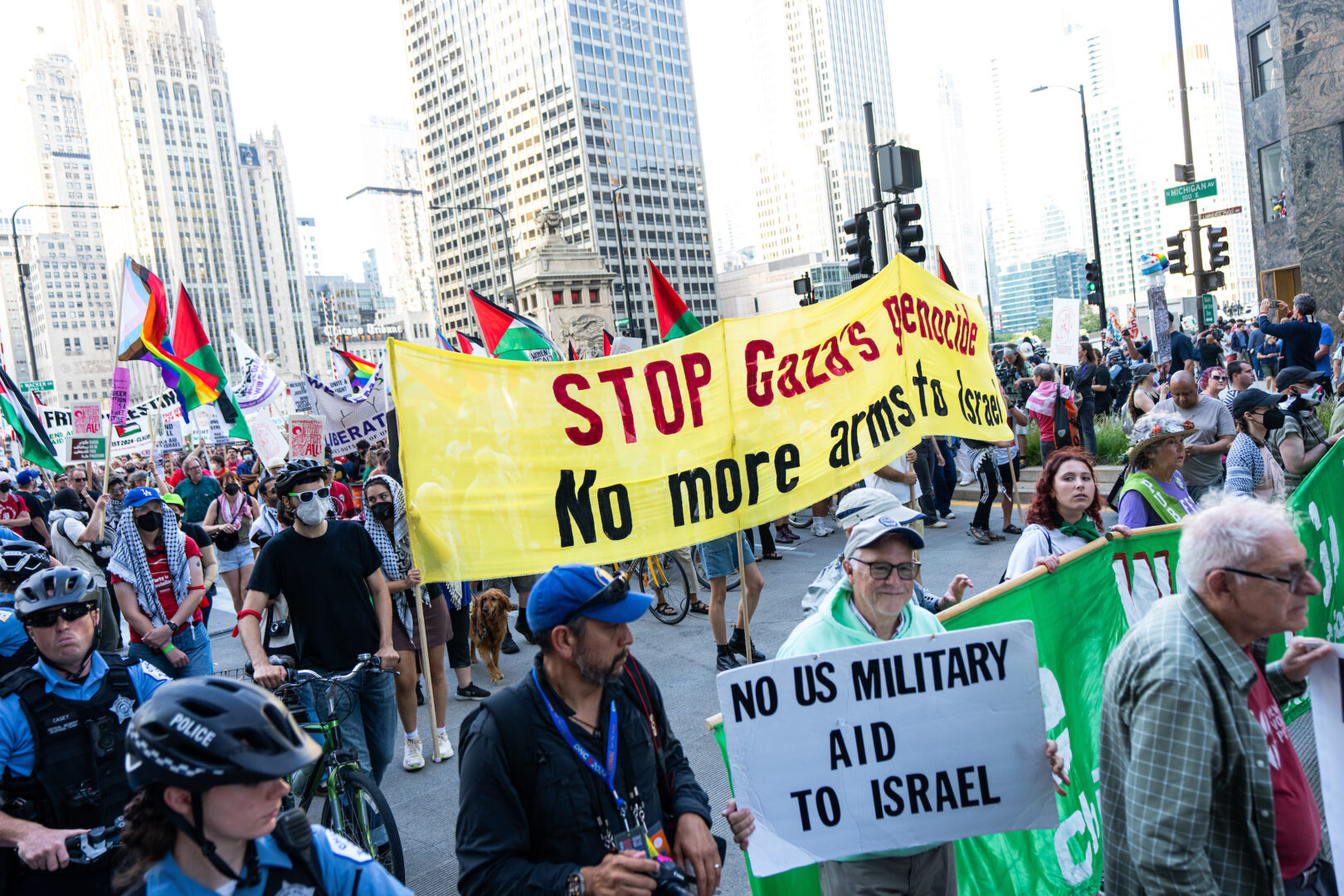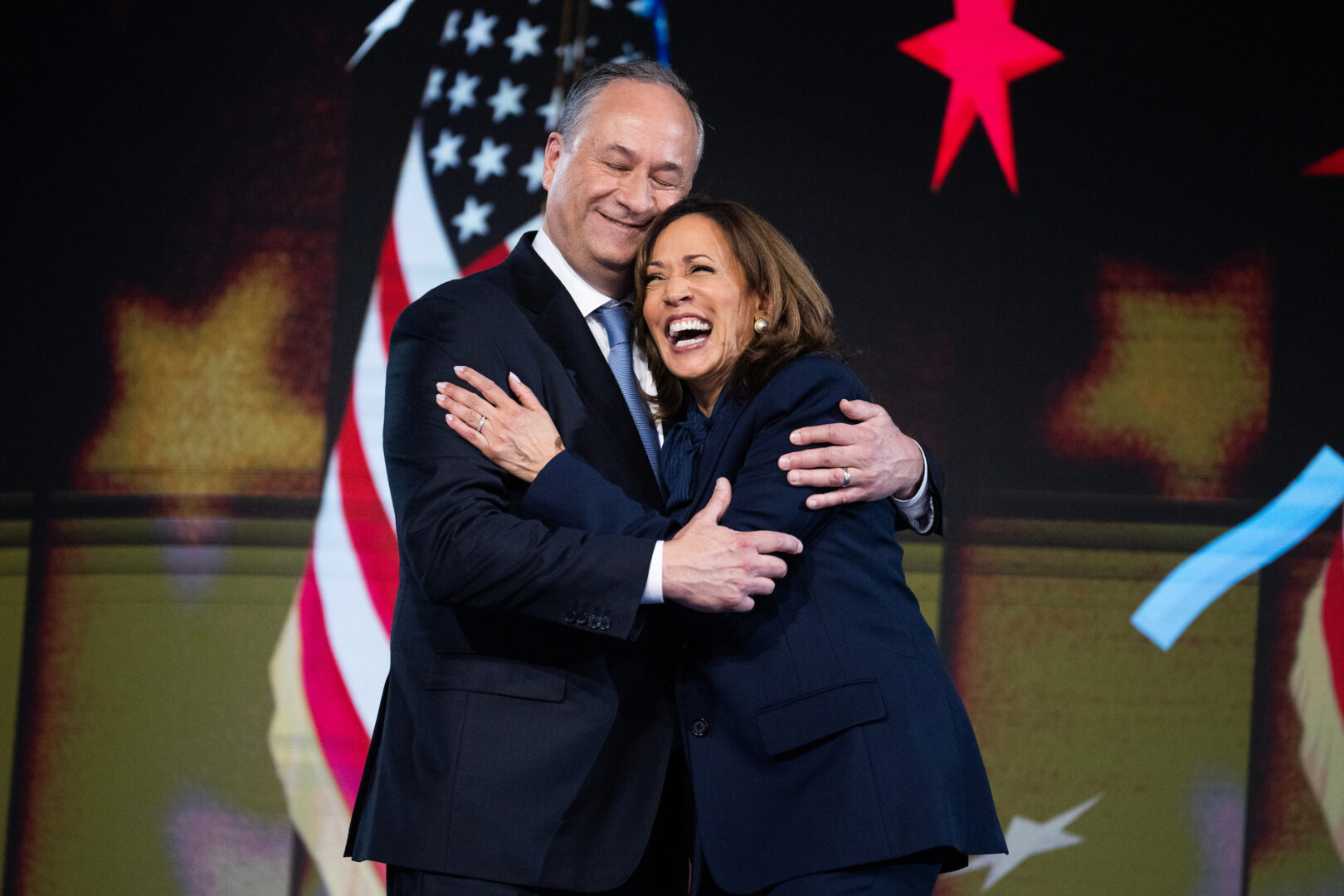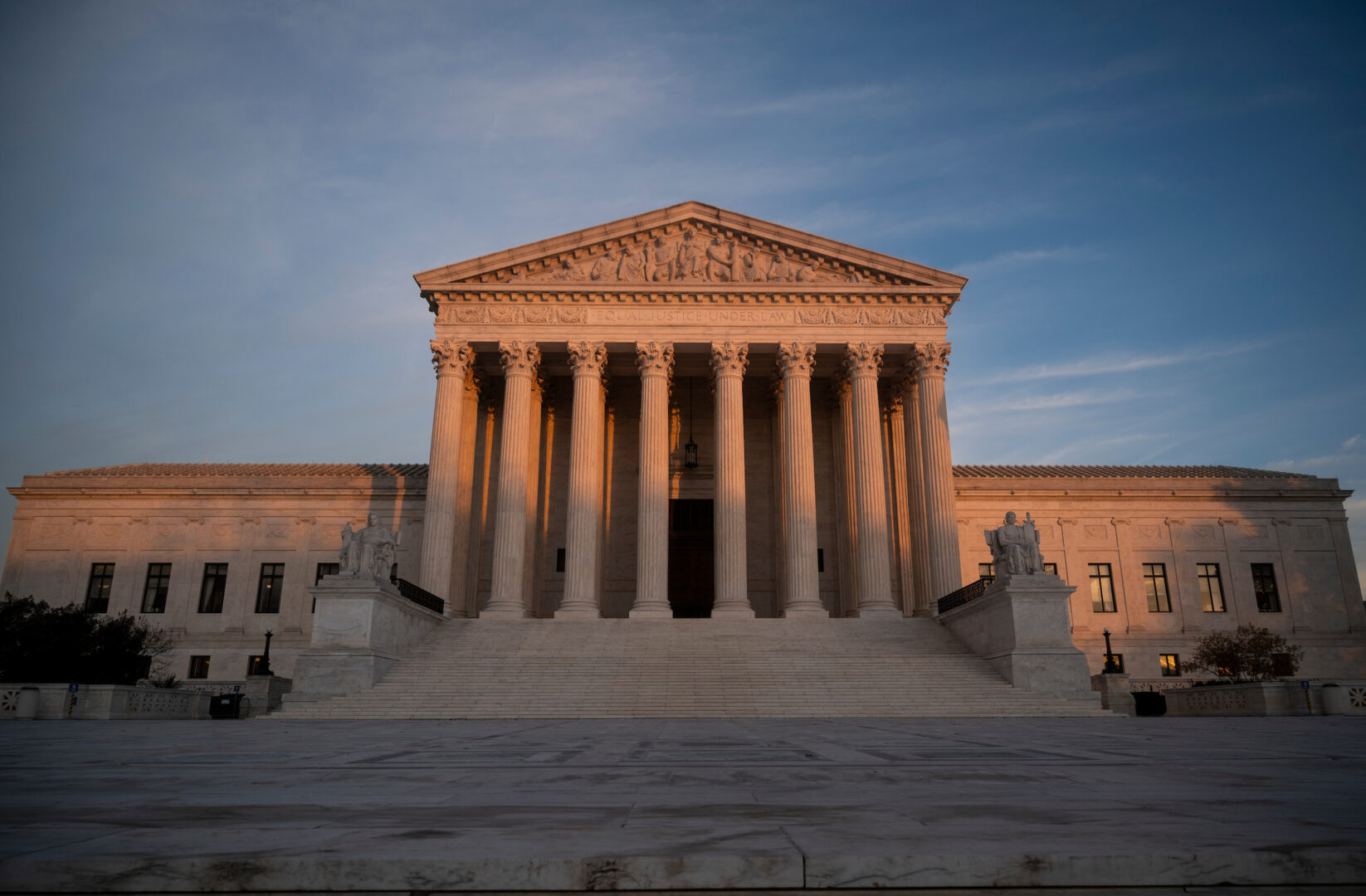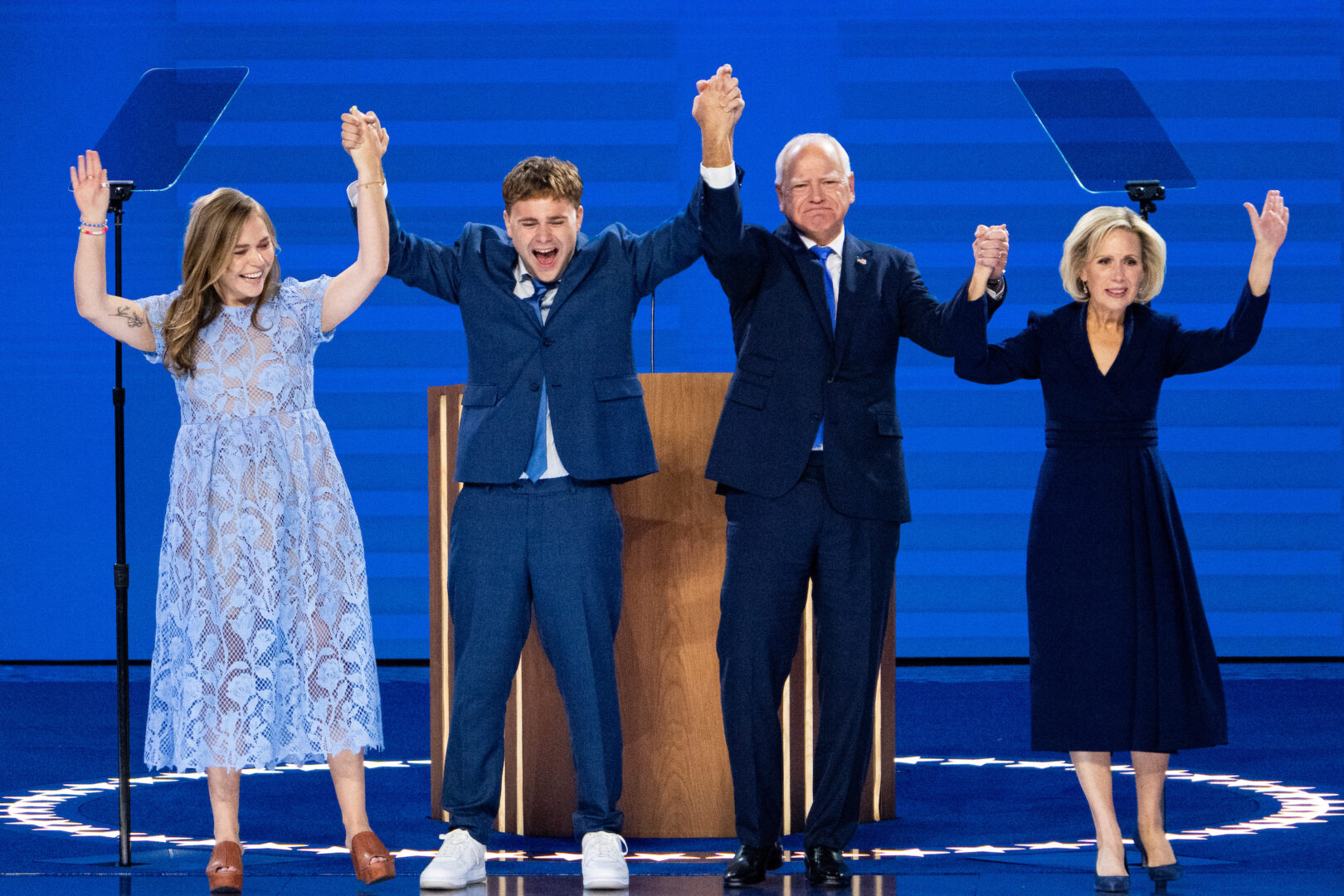Uncommitted Dems vow to seek Gaza policy shift from inside party
'We’ve never had this forum before,' activist says

CHICAGO — As protesters began massing in a Chicago park Monday morning to oppose U.S. military support for Israel, some Democratic delegates gathered in a meeting room deep within McCormick Place and vowed to press for change from the inside.
The delegates, 30 in all, represent Democratic primary voters who cast uncommitted ballots to signify their unhappiness with U.S. support for Israel in a war that has claimed more than 40,000 Palestinian lives.
“We’ve been able to send a message that our values, our votes and our rightful place in the Democratic Party cannot be taken for granted,’’ Layla Elabed, co-founder of the Uncommitted National Movement and sister of Rep. Rashida Tlaib, D-Mich., said at a press conference Monday morning. “This is our fight for the soul of the Democratic Party.”
The change at the top of the presidential ticket has done little to quell the group’s concerns about the Biden administration’s support for Israel’s brutal military offensive in Gaza following Hamas’ Oct. 7 attack inside Israel. Vice President Kamala Harris met briefly with Elabed last week, and other delegates said they appreciate Harris’ expressions of empathy for Palestinians.
But they are seeking more.
“We need meaningful policy change,’’ said June Rose, an uncommitted delegate from Rhode Island. “We as Democrats cannot oppose Donald Trump’s fascism at home while supporting Benjamin Netanyahu’s genocide abroad.”
Abbas Alawieh, a delegate from Michigan, said the group was eager to hear from Harris. “We know how dangerous Donald Trump’s agenda around Palestine and Israel [is] … and we need Vice President Harris to tell us how she would be different,’’ he said.
The complex political crosscurrents raised by the war in Gaza have provided a counternarrative to the unity and optimism that were on display Monday, the opening day of the Democratic National Convention here.
The party’s platform emphasizes the U.S. commitment to Israel and denounces the attack by Hamas that left 1,200 people dead.
“The United States strongly supports Israel in the fight against Hamas. And the hard work of diplomacy under the President’s leadership has made real progress on a way forward that will free the hostages, establish a durable cease-fire, ease humanitarian suffering in Gaza, and make possible normalization between Israel and key Arab states, together with meaningful progress and a political horizon for the Palestinian people,’’ the platform states.
Demands by the uncommitted delegates for Harris to call for a permanent cease-fire and an end to U.S. military aid to Israel have so far gone unanswered.
The group is also seeking a commitment by the Democratic National Committee to feature a prime-time speech by a Palestinian leader on the convention’s main stage.
DNC Chair Jaime Harrison was noncommittal when asked at a separate event Monday morning whether the group’s demand for a speaker would be met. “Everybody wants to put forth a speaker,’’ he said. “I’ve got over 4,000 delegates … and … everybody wants to be on that speaking stage.”
But the uncommitted delegates scored one win on Monday: The DNC sanctioned the first official panel on Palestinian human rights.
At that session, James Zogby, founder of the Arab American Institute, said the last time Palestinians played a key role at a Democratic National Convention was in 1988, when Jesse Jackson highlighted the issue during his presidential campaign.
The DNC’s willingness to host a panel on Palestinian rights signals a new willingness to discuss the issue, he said. “We’ve never had this forum before,’’ he said. “It’s not the end, it’s the beginning.”
The uncommitted delegates said they intend to work within the system, even while praising the outside protesters. “We are here to fulfill our duties as uncommitted delegates,” Alawieh said. “We also acknowledge that there’s dignity in protest, that protesters all over the country are lifting up a central demand … for the need for respecting Palestinian human rights, and protesting in our country is a sacred right that we must respect.”
Jeremiah Ellison, a member of the Minneapolis City Council and an uncommitted delegate, said concerns about the war in Gaza — where over 40,000 people have died during the Israel offensive — could shape more than the presidential race.
“How disillusioned people are by … who’s at the top of the ticket absolutely has down-ballot effects,’’ said Ellison, the son of Keith Ellison, Minnesota attorney general and a former member of the House. “A few people opting out because they’re disillusioned is going to … just sort of cascade down ballot.”
Mary Ellen McIntire contributed to this report.





